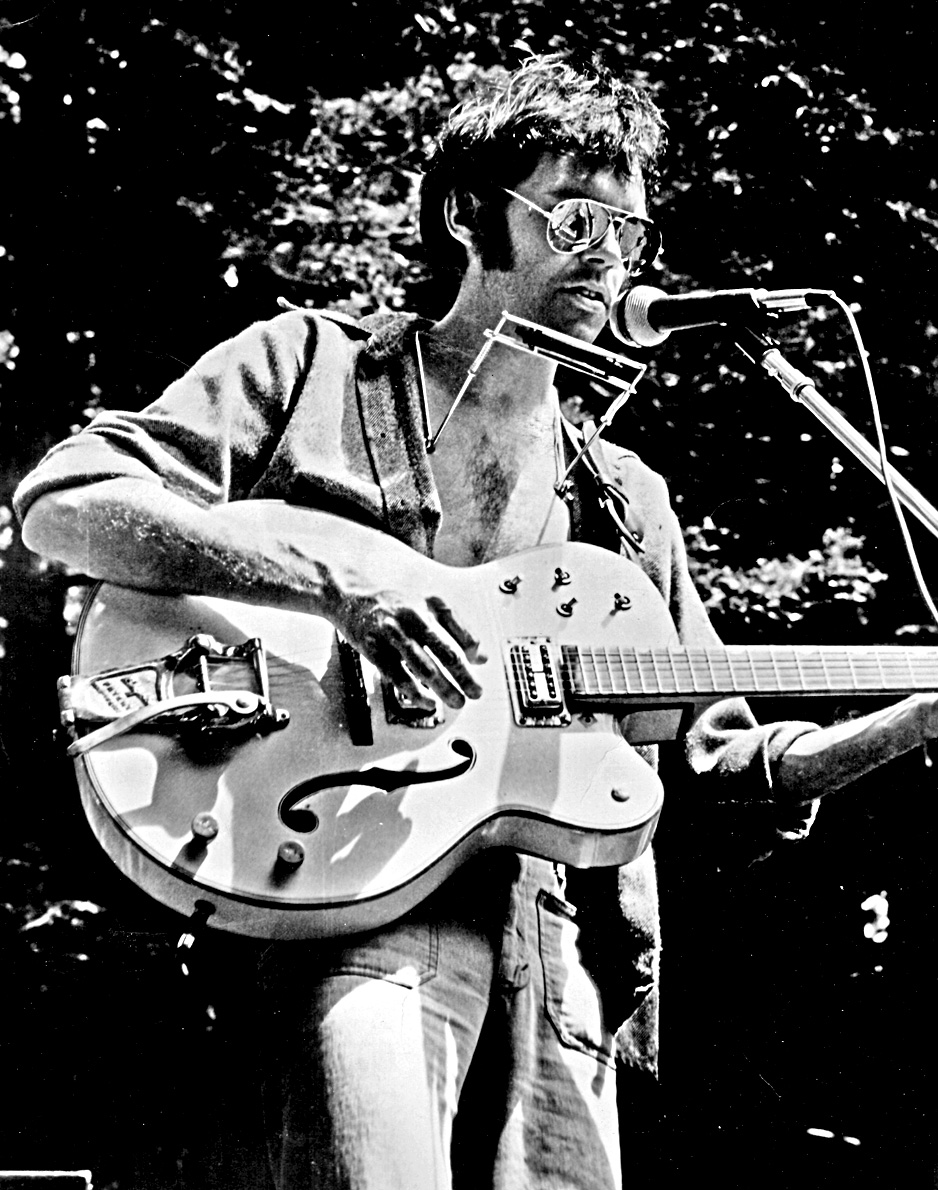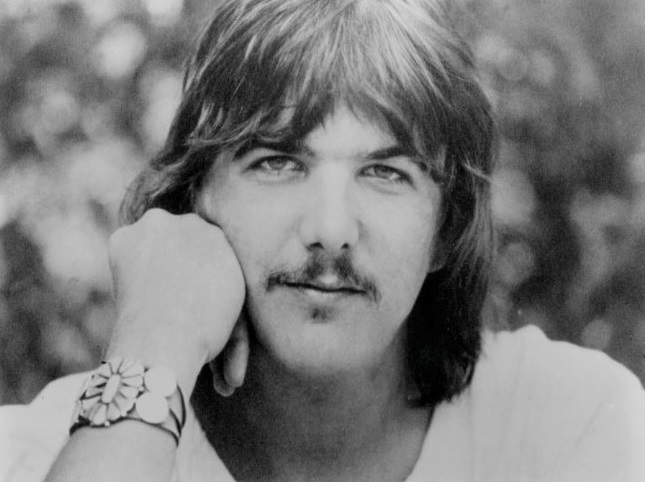|
Eiichi Otaki
Eiichi Ohtaki (July 28, 1948 – December 30, 2013) was a Japanese musician, singer-songwriter and record producer. He first became known as a member of the rock band Happy End, but was better known for his solo work which began in 1972. In 2003, Ohtaki was ranked by HMV Japan at number 9 on their list of the 100 most important Japanese pop acts. Patrick Macias referred to Ohtaki as Phil Spector, Brian Wilson, George Martin and Joe Meek "synthesized into a single human being," and called his work "an encyclopedia of everything that was great about pop music in the 20th century." Biography Ohtaki was born in Esashi District, in what is now part of Ōshū. Before joining Happy End, Ohtaki was guitarist in a group called Taboo with future Blues Creation singer Fumio Nunoya. Happy End produced three albums, '' Happy End'' (1970), ''Kazemachi Roman'' (1971) and '' Happy End'' (1973), before officially disbanding on New Year's Eve 1972. Ohtaki had already released his first s ... [...More Info...] [...Related Items...] OR: [Wikipedia] [Google] [Baidu] |
A Long Vacation
''A Long Vacation'' is an album by Japanese musician Eiichi Ohtaki, released on March 21, 1981. It sold over a million copies and won Best Album at the 23rd Japan Record Awards. It has been called one of the greatest Japanese rock albums of all time, including by ''Rolling Stone Japan''. Background Several songs on ''A Long Vacation'' were influenced by American record producer Phil Spector and his Wall of Sound formula. But the closing track, "Farewell Trans-Siberian Railway", was intended as a tribute to English record producer Joe Meek. All three of Ohtaki's former Happy End bandmates contributed to ''A Long Vacation''; Takashi Matsumoto wrote the lyrics for every song except one, Shigeru Suzuki contributed guitar, and Haruomi Hosono played bass guitar. Although having never been to the Canary Islands, Matsumoto wrote "Canary Islands Nite" based on how he imagined it to be and on the assumption that it was like Hawaii. When he finally did visit in 1999 for a Carlos Kle ... [...More Info...] [...Related Items...] OR: [Wikipedia] [Google] [Baidu] |
Ōshū, Iwate
is a city located in Iwate Prefecture, Japan. , the city had an estimated population of 114,620 and a population density of 120 persons per km² in 45,728 households. The total area of the city is . Ōshū is famous for its Maesawa Beef, numerous festivals, historic temples and shrines and Fujiwara no Sato, a theme park and movie lot based on the exploits of the Northern Fujiwaras in the 12th century. Many famous people claim Ōshū as their home, including Ichiro Ozawa, the long-time leader of the Democratic Party of Japan. Geography Ōshū is located in the south-central portion of Iwate Prefecture, bordered by the Akita Prefecture to the west. At 993.35 square kilometers, Ōshū is the second largest municipality in Iwate Prefecture in terms of land area. The city lies in a fertile plain straddling the Kitakami River and rises to the Ōu Mountains in the west and the Kitakami Mountains to the east. The city's highest point is Mt. Yakeishi-dake at 1,548 meters in the Ōu Moun ... [...More Info...] [...Related Items...] OR: [Wikipedia] [Google] [Baidu] |
MTV81
MTV (Originally an initialism of Music Television) is an American cable channel that launched on August 1, 1981. Based in New York City, it serves as the flagship property of the MTV Entertainment Group, part of Paramount Media Networks, a division of Paramount Global. The channel originally aired music videos and related programming as guided by television personalities known as VJ (media personality), video jockeys, or VJs. In the years since its inception, it significantly toned down its focus on music in favor of original reality programming for teenagers and young adults. Since early 2020, MTV has devoted most of its programming schedule to a single program, ''Ridiculousness (TV series), Ridiculousness'', which in June 2020 aired "for 113 hours out of the network’s entire 168-hour lineup". MTV has spawned numerous List of MTV channels, sister channels in the United States and affiliated channels internationally, some of which have since gone independent. Approximately ... [...More Info...] [...Related Items...] OR: [Wikipedia] [Google] [Baidu] |
Supergroup (music)
A supergroup is a musical group whose members are successful as solo artists or as members of other successful groups. The term became popular in the late 1960s when members of already successful rock groups recorded albums together, after which they normally disband. Charity supergroups, in which prominent musicians perform or record together in support of a particular cause, have been common since the 1980s. The term is most common context of rock and pop music, but it has occasionally been applied to other musical genres. For example, opera superstars The Three Tenors ( José Carreras, Plácido Domingo, and Luciano Pavarotti) have been called a supergroup. A supergroup sometimes forms as a side project for a single recording project or other ''ad hoc'' purposes, with no intention that the group will remain together afterwards. In other instances, the group may become the primary focus of the members' career. History ''Rolling Stone'' editor Jann Wenner credited British rock ... [...More Info...] [...Related Items...] OR: [Wikipedia] [Google] [Baidu] |
Exclaim!
''Exclaim!'' is a Canadian music and entertainment publisher based in Toronto, which features in-depth coverage of new music across all genres with a special focus on Canadian and emerging artists. The monthly Exclaim! print magazine publishes 7 issues per year, distributing over 103,000 copies to over 2,600 locations across Canada. The magazine has an average of 361,200 monthly readers and their website, exclaim.ca, has an average of 675,000 unique visitors a month. History ''Exclaim!'' began as a discussion among campus and community radio programmers at Ryerson's CKLN-FM in 1991. It was started by then-CKLN programmer Ian Danzig, together with other programmers and Toronto musicians. The goal of the publication was to support great Canadian music that was otherwise going unheralded. The group worked through 1991 to produce their first issue in April 1992, with monthly issues being produced since. Ian Danzig has been the publisher of the magazine since its start. James Keast ... [...More Info...] [...Related Items...] OR: [Wikipedia] [Google] [Baidu] |
Tatsuro Yamashita
, occasionally credited as Tatsu Yamashita or Tats Yamashita, is a Japanese singer-songwriter and record producer, who is known for pioneering the style of Japanese adult-oriented rock/soft rock music. His most well-known song is "Christmas Eve", the best-selling single song released in Japan in the 1980s, appearing on the Japanese singles chart for over 35 consecutive years. He is known for his collaborations with his wife, singer Mariya Takeuchi, on many songs including "Plastic Love" as well as with American songwriter Alan O'Day with whom he wrote hit songs "Your Eyes," "Magic Ways," "Love Can Go the Distance," and "Fragile." Active since the 1970s, Yamashita is considered an important contributor to Japanese music, ranked by HMV Japan as sixth in the Top 100 Japanese Artists. Career Yamashita was a member of the band Sugar Babe with musicians Taeko Onuki and Kunio Muramatsu, who released their only album ''Songs'' in 1975. After the group disbanded in 1976, Yamashit ... [...More Info...] [...Related Items...] OR: [Wikipedia] [Google] [Baidu] |
Taeko Onuki
is a Japanese singer and songwriter. She is influential in the city pop genre. Early life and career Taeko Onuki was born in Suginami Ward, Tokyo, in 1953. Her father was Kenichiro Onuki, a member of the Japanese Special Attack Units during the Second World War. In 1973, she formed ''Sugar Babe'' with musicians Tatsuro Yamashita and Kunio Muramatsu. Because the dominant music style at the time was hard rock, audiences did not respond too warmly, and the group ended up splitting only three years later. In 1976, Onuki began her solo career by releasing the album ''Grey Skies,'' which carried the same sound as Sugar Babe. Her second, landmark album ''Sunshower'' was released the following year in 1977 and had a much different style, mixing pop music and jazz. In 1978 she released her third album, ''Mignonne'', in which she worked with producer Eji Ogura, but the sales-focused process was difficult for her and the album didn't sell as expected. She took a two year break from mus ... [...More Info...] [...Related Items...] OR: [Wikipedia] [Google] [Baidu] |
Neil Young
Neil Percival Young (born November 12, 1945) is a Canadian-American singer and songwriter. After embarking on a music career in Winnipeg in the 1960s, Young moved to Los Angeles, joining Buffalo Springfield with Stephen Stills, Richie Furay and others. Since the beginning of his solo career with his backing band Crazy Horse (band), Crazy Horse, he has released many critically acclaimed and important albums, such as ''Everybody Knows This Is Nowhere'', ''After the Gold Rush'', ''Harvest (Neil Young album), Harvest'', ''On the Beach (Neil Young album), On the Beach'' and ''Rust Never Sleeps''. He was a part-time member of Crosby, Stills, Nash & Young. His guitar work, deeply personal lyrics and signature high tenor singing voice define his long career. Young also plays piano and harmonica on many albums, which frequently combine folk music, folk, rock music, rock, country music, country and other musical genres. His often distorted electric guitar playing, especially with Cra ... [...More Info...] [...Related Items...] OR: [Wikipedia] [Google] [Baidu] |
Country Rock
Country rock is a genre of music which fuses rock and country. It was developed by rock musicians who began to record country-flavored records in the late 1960s and early 1970s. These musicians recorded rock records using country themes, vocal styles, and additional instrumentation, most characteristically pedal steel guitars.V. Bogdanov, C. Woodstra and S. T. Erlewine, ''All Music Guide to Rock: The Definitive Guide to Rock, Pop, and Soul'' (Backbeat Books, 3rd ed., 2002), p. 1327. Country rock began with artists like Buffalo Springfield, Michael Nesmith, Bob Dylan, Nitty Gritty Dirt Band, the Byrds, the Flying Burrito Brothers, The International Submarine Band and others, reaching its greatest popularity in the 1970s with artists such as Emmylou Harris, the Eagles, Linda Ronstadt, Michael Nesmith, Poco, Charlie Daniels Band, and Pure Prairie League. Country rock also influenced artists in other genres, including the Band, the Grateful Dead, Creedence Clearwater Revival, the ... [...More Info...] [...Related Items...] OR: [Wikipedia] [Google] [Baidu] |
Happy End (1973 Album)
''Happy End'' is the third and final album by Japanese folk rock band Happy End. It was recorded in Los Angeles, produced by Van Dyke Parks and features several American session musicians such as Lowell George and Bill Payne of the band Little Feat. Background and recording The album was recorded at Sunset Sound Studios in Los Angeles in late 1972. Van Dyke Parks, known for his collaborations with Brian Wilson and The Beach Boys, produced the album. In 2013, Parks stated that the band walked in unannounced while he and Lowell George were working on "Sailin' Shoes" and asked him to give them the " California Sound". He initially refused saying he was busy with sessions for his own album '' Discover America'', but accepted when George noticed a suitcase full of new one hundred-dollar bills with Happy End's manager. Although Haruomi Hosono later described the work with Parks as "productive," the album sessions were tenuous, and the members of Happy End were disenchanted with their v ... [...More Info...] [...Related Items...] OR: [Wikipedia] [Google] [Baidu] |
Kazemachi Roman
is the second album by Japanese folk rock band Happy End, released on URC Records in 1971. In this concept album, Happy End attempted to paint a musical picture of Tokyo before the 1964 Summer Olympics, through which sweeping changes transformed the city forever. “The band’s 1971 album ‘Kazemachi Roman,’ a classic of the genre, describes with a shrug how the Tokyo of their childhood was being swept away and replaced by a high-tech metropolis.“ Background and release OK Music's Naoto Kawasaki notes how Eiichi Ohtaki and Shigeru Suzuki did not contribute to "Kaze wo Atsumete", with Haruomi Hosono playing the bass, guitar and organ and providing its vocals while Takashi Matsumoto plays the drums. Suzuki is also absent from "Kurayamizaka Musasabi Henge", which Kawasaki felt was inspired by the Nitty Gritty Dirt Band. Bannai Tarao, a fictional detective who has appeared in many Japanese crime thrillers, is credited on several of the album's songs. Ohtaki even opens "Haikar ... [...More Info...] [...Related Items...] OR: [Wikipedia] [Google] [Baidu] |

.png)

